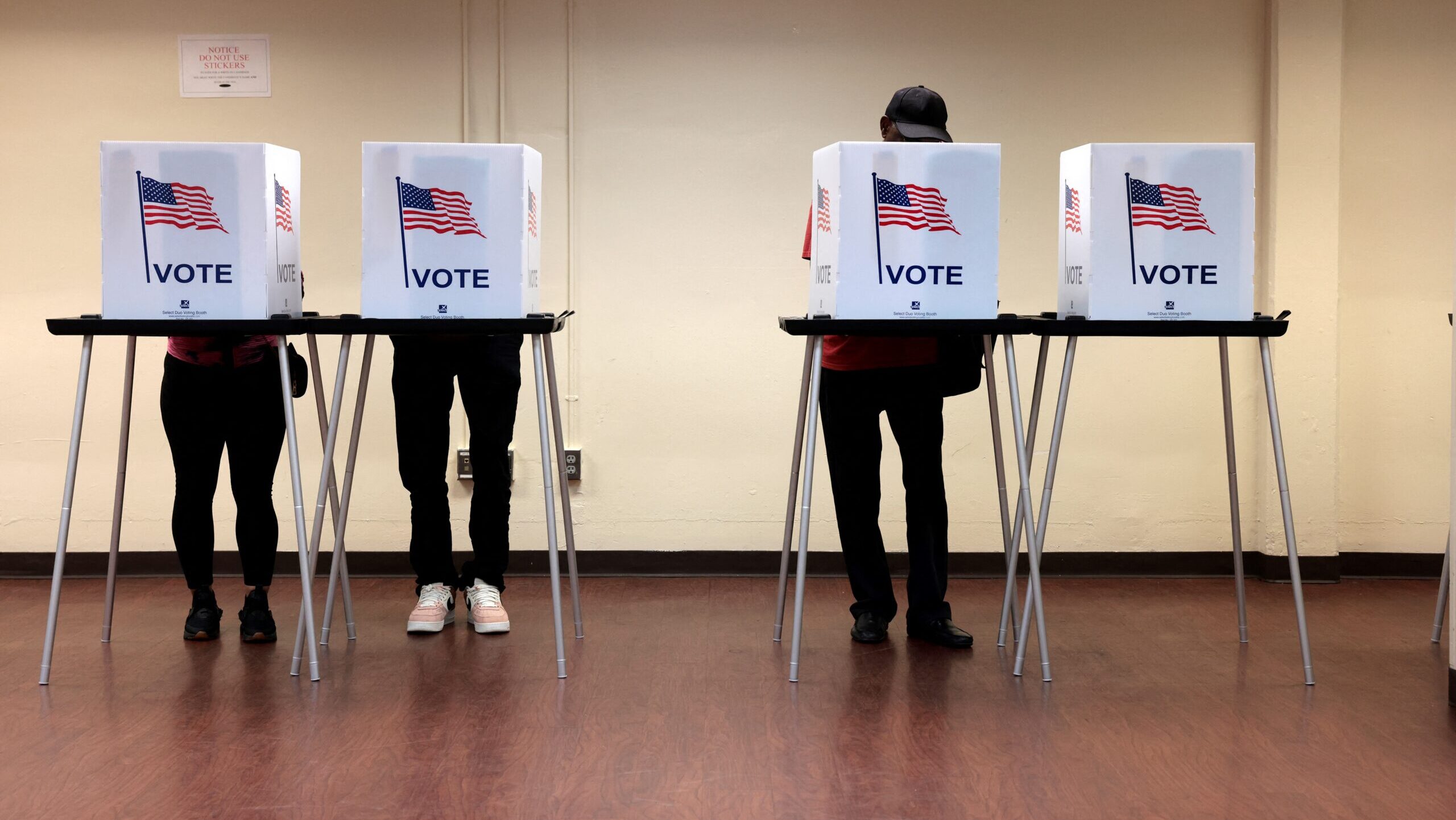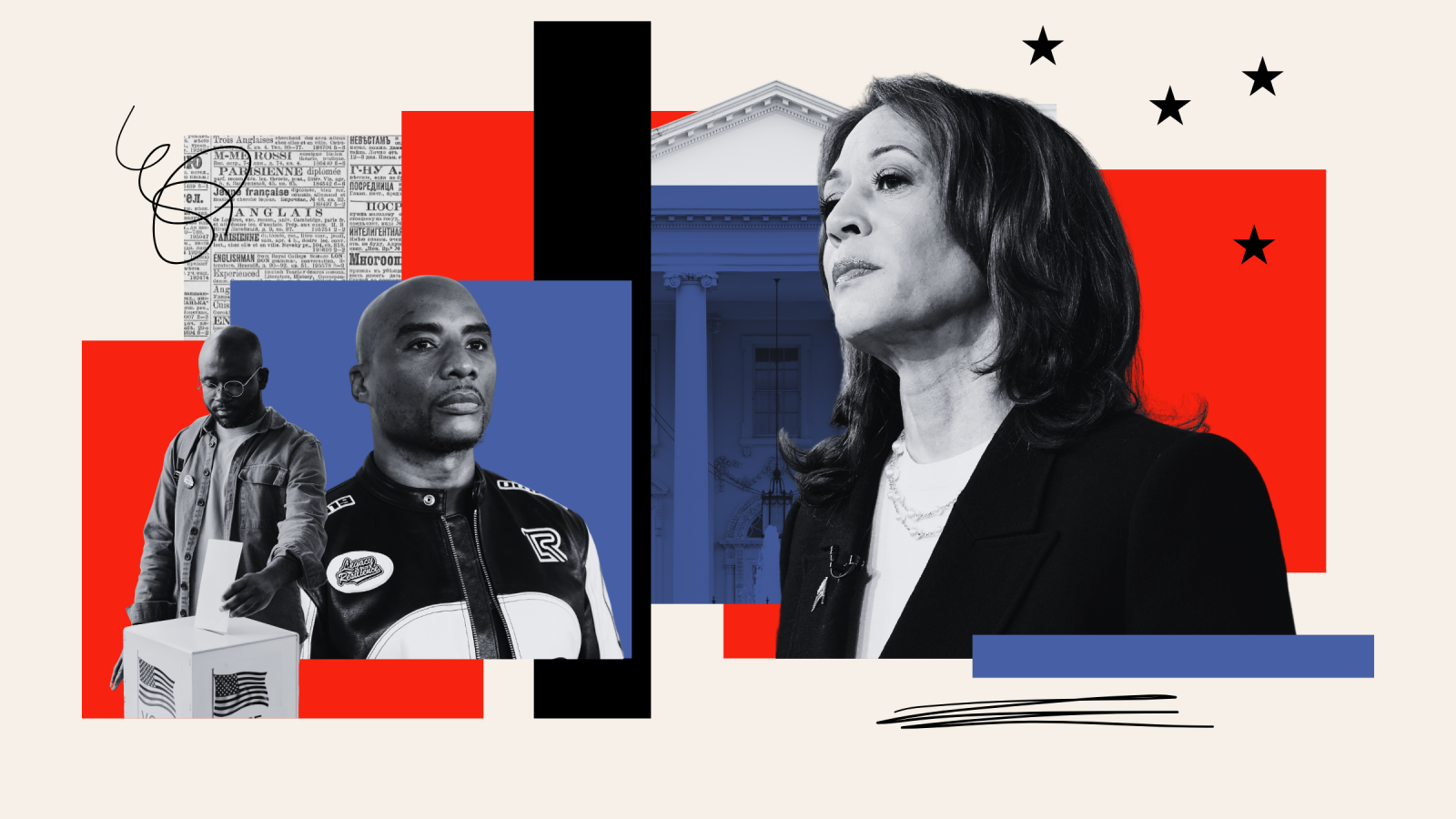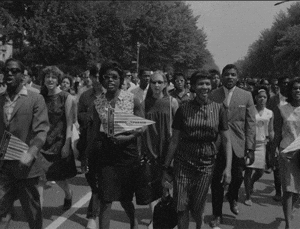- BlackVoter.Org
- Posts
- BLACKVOTER.ORG
BLACKVOTER.ORG

In a thought-provoking episode of "Local Global Leaders," host Abeer Sikder welcomes Sharon Murphy, the founder of Real Life Civics, to explore the pervasive nature of politics in our lives. Murphy emphasizes that even if we aren’t consciously thinking about political issues, they continuously influence us, shaping our opportunities and behaviors.
With a focus on human-centered leadership, she urges listeners to recognize their agency in engaging with civic matters. Highlighting the role of effective leadership in navigating crises, Murphy's insights inspire a call to action.
This conversation is not just about politics; it's a reminder that every decision we make has political implications, making it crucial for everyone to stay informed and involved in their communities.

A recent study highlights a devious trend on Facebook, where deceptive "bait-and-switch" groups mislead U.S.
voters by masquerading as fan pages for Vice President Kamala Harris. These groups, often targeting both sides of the political spectrum, use misleading tactics to promote hateful content or rival candidates like Donald Trump while claiming to support Harris.
The American Sunlight Project analyzed over 300 such groups, revealing how they exploit user trust to spread disinformation. Many of these groups are not well organized, featuring posts that range from racist attacks to commercial merchandise.
Despite sharing troubling content, Facebook's parent company, Meta, asserts its commitment to combating deceptive practices. Experts warn that this strategy not only undermines electoral integrity but also showcases the complexity of online misinformation, urging users to be cautious and deliberate about their online interactions, especially as election season approaches.

In a proactive move to safeguard election integrity, Pennsylvania election officials are teaming up with the Department of Health to ensure that votes are not cast in the name of the deceased. As a critical swing state often targeted by misinformation, Pennsylvania is adopting measures to counter baseless claims regarding dead voters impacting elections.
County officials regularly update voter registration lists based on vital health data, helping to identify those who have passed away. Once a voter is confirmed deceased—using health department records, obituaries, and estate documents—any ballots submitted are automatically disqualified.
This initiative reflects a commitment to maintaining trust in the electoral process, ensuring that every voice heard is that of a living, active participant. By leveraging data efficiently, Pennsylvania aims to keep the election environment fair and transparent.

The Atlantic explores a noteworthy shift in Black male voting patterns, with an increasing number leaning toward Donald Trump despite his controversial history. This realignment stems from a blend of cultural conservativism and economic liberalism that diverges from the current Democratic Party stance.
Polls reveal that while the majority of Black men still prefer Democratic candidates, support for Trump is rising, especially among younger Black men. Experts argue that Democrats need to acknowledge and address the unique concerns of Black male voters, who feel increasingly independent and often dissatisfied.
Many seek a more focused agenda that directly addresses economic and social issues, rather than culture wars. As Trump garners historic support among this demographic, the Democratic Party faces the challenge of re-engaging voters who feel overlooked and misrepresented, particularly highlighting the importance of addressing pressing domestic concerns over international ones.

Dive into the captivating world of politics and celebrity with this engaging NPR quiz! Just when you think you've heard it all, a familiar voice declaring "I hate politics" unexpectedly throws their support behind Kamala Harris. This week’s challenge invites you to guess who may have made this curious endorsement.
As Halloween has just passed, you may still find yourself haunted by spooky costumes or political nightmares. But fear not—this quiz blends humor with timely political knowledge, ensuring you'll be entertained while testing your current events savvy.
Whether you’re a pop culture aficionado or just trying to keep up with the political landscape, this quiz offers a playful twist on serious subjects.
As Election Day approaches in Kentucky, early voting is in full swing, with more than 225,000 Kentuckians having already cast their ballots. Voters have been flocking to polling places, taking advantage of the convenience offered by early voting opportunities.
Despite a minor hiccup with a malfunctioning ballot machine, which was quickly resolved, the atmosphere remains positive and energized. In Jefferson County alone, residents can choose from 20 locations spread across the area to cast their votes early on designated days.
This is a vital chance for those looking to participate in the democratic process without the rush of Election Day. With momentum building, Kentuckians are showing their commitment to making their voices heard.

The race for Alabama's Congressional District 2 is heating up, with political analysts predicting that the election will hinge on voter turnout. Newly drawn to boost Black representation, this “district of opportunity” features a registered voter base of approximately 52% Black and 45% White.
However, past elections reveal a concerning trend: while the district is majority Black, voter turnout has historically favored white voters—arguably undermining the potential for equitable representation. Mobile-based consultant Jon Gray emphasizes the critical need for mobilization, as candidates Shomari Figures and Caroleene Dobson strategize to engage likely voters.
Figures aims to galvanize support among Democrats, having seen a significant turnout in a recent primary. Meanwhile, both candidates agree that winning requires concerted efforts to educate and encourage voters to hit the polls, emphasizing it's not just about registration but actual participation.

In the politically charged atmosphere of Pennsylvania, voters in Berks County grapple with the increasing toxicity of national politics as the presidential race heats up. With a divided electorate, this region of small towns and diverse communities oscillates between Democratic and Republican sentiments, reflecting a microcosm of America’s broader political landscape.
Residents express a collective concern over rising inflation and economic struggles, overshadowing divisive cultural issues. While many see neighbors cooperating on local issues, there’s an underlying unease about the hatred that festers in political discourse.
Enthusiastic supporters of both Trump and Harris articulate competing visions for the future, yet both sides lament the erosion of civility and respect. As Berks County’s voters edge closer to the crucial election, they remain torn between their political ideals and the pressing need for community cohesion amidst deepening divides.

As Election Day approaches, the intensity of the 2024 presidential race heightens, with former President Donald Trump slightly leading Vice President Kamala Harris in a battle where neither candidate enjoys widespread popularity. Voters seem more motivated to cast ballots against a candidate rather than for one, making turnout critical in this nail-biting contest.
The polarized political landscape sees traditional party lines blurring as demographic shifts come into play, especially among Jewish and Muslim voters. Uncertainties loom over key swing states, with recent polls indicating tight margins among voters.
Issues such as the economy, immigration, and democracy dominate debates, with Trump perceived as a fierce advocate for nationalism, and Harris championing progressive values. As both candidates make final appeals to undecided voters, the question remains: who can galvanize their base and sway the crucial votes needed to secure the presidency? The nation waits eagerly for the outcome come November 5.

In a bold and controversial move, Elon Musk is reshaping U.S.
politics with a staggering $119 million investment to propel Donald Trump’s presidential campaign. As the election approaches, Musk's social media platform, X, has become a hub for pro-Trump messaging, and he’s taken on a prominent role in rallies across swing states.
However, Musk's political ambitions aren't without scrutiny. He faces legal challenges linked to claims of vote-buying and investigations by the SEC, all while managing his vast business interests that intersect with national security.
Despite initial struggles with his PAC's ground campaign, recent efforts have shown improvement, though skepticism about its effectiveness remains. As Musk transitions from an occasional donor to a political powerhouse, this election may serve as a litmus test for the lengths wealthy individuals can go in influencing democracy—sparked by the Supreme Court's Citizens United decision.
Will his gamble pay off? The stakes are higher than ever.

In a candid moment, Vice President Kamala Harris revealed her campaign's struggle to connect with young Black male voters, a vital demographic for the upcoming 2024 elections. Despite her background as a Baptist and civil rights advocate, a significant shift in religious engagement among younger Black Americans has complicated her outreach efforts.
Research shows that church attendance among Millennials and Gen Z is dropping, undermining a traditional campaign channel for Democrats. To adapt, Harris has employed more innovative strategies, seeking to resonate through platforms like social media and candid dialogues with influential figures such as Charlamagne tha God.
Recent polls indicate a promising uptick in support, particularly among young Black men, with a 10-point increase since early October. However, the campaign still faces challenges; Harris's current standing among Black voters is 87%, trailing behind previous Democratic success rates.
The race is tight, and every vote counts.

